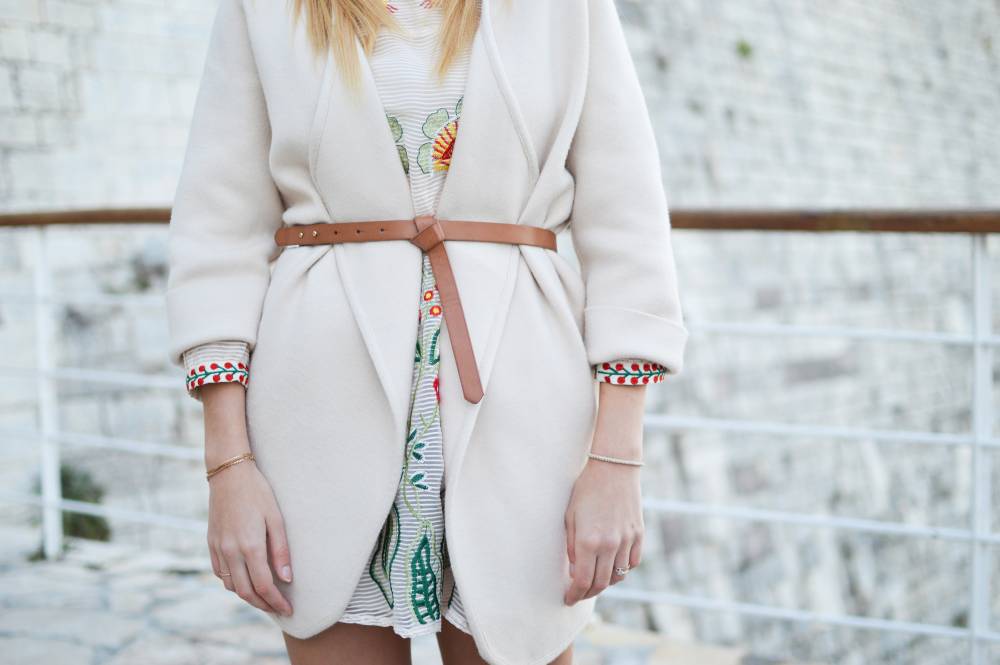
Fashion is one of the most polluting industries in the world. It's responsible for excessive waste, pollution, and greenhouse gas emissions.
Garment mass-production and consumption releases toxic chemicals, untreated wastewater, plastic microfibers, and carbon dioxide into the environment.
The textile and apparel industry contributes massively to deforestation and global warming. It produces more than 8% of all carbon emissions globally each year.
Read up my article on the fashion industry's catastrophic contribution to climate change to learn more about the environmental impact of fashion.

Luckily, the green fashion movement is booming. Conscious consumers are asking for more environmentally friendly items that protect the planet and the welfare of workers in the supply chains.
Everyone has a role to play to increase sustainability in the fashion world. As consumers, we can get informed, raise awareness around these issues, make better purchasing decisions, and recycle clothing we don't wear anymore.
Fashion designers, brands, and retailers can't afford to wait for rising consumers' demand for sustainable clothing. Sustainability is a work in progress but large players in the fashion industry must now take massive action to reduce waste, pollution, and carbon emissions.
Sustainability is a huge challenge for the textile and apparel industry as a whole. But waste is piling up in landfills at an alarming rate. We are on the verge of a global social and environmental crisis. Humanity is in a climate emergency.
It's time for fashion brands and retailers to stop taking shortcuts on their environmental efforts. Only a small minority of customers look at brands’ sustainability policies before making a purchase decision. Consumer behaviors take a long time to change.
Follow my guide on how to check if a fashion brand is ethical to learn how to make better choices when spending your money on apparel and footwear.

Today, sustainability is becoming an increasingly important part of every successful company, including in the fashion industry, as reported by BlackRock Sustainable Investing.
The global COVID-19 crisis is also a huge factor contributing to the growing importance of sustainability for businesses.
To survive post-coronavirus pandemic, fashion organizations must build trust with customers and suppliers and include more ecological, social, and economic sustainability practices in their daily operation.
Read up my article on how fast fashion affects the economy to learn more about the importance of economic sustainability.

Investors now also consider sustainability as a meaningful factor when they decide where to place their funds. Fashion companies without sustainable products risk losing investors, shareholders, and customers.
“If we’re making an investment in a company for somebody’s pension scheme, we want to know that company’s going to be around in 20-30 years. We want to get very comfortable that they have longevity, that they have a business model that is going to work in the longer term. That means, right now, being focused on things like climate risk.”
- Sarah Melvin, Head of BlackRock's UK Business
The fundamental change in the textile and apparel industry is only starting. It needs to happen quicker, considering fashion disastrous impact on the economy, society, and the environment.

“It takes more than just sourcing sustainable materials to actually be sustainable and future-proof your business in the face of current and future macroeconomic challenges. If a company isn't thinking holistically about how to improve the environmental, social, and financial sustainability of the business, it is not an attractive investment opportunity.”
- Karla Mora, Founder & Managing Partner at Alante Capital
Fashion brands and retailers must become more innovative and transform the way they design, produce, distribute, sell, collect, and recycle clothes.
A significant change in both supply chains and business models is necessary to ensure a sustainable fashion future that leaves a lasting, positive impact on the planet, people, and animals.
Was this article helpful to you? Please tell us what you liked or didn't like in the comments below.
About the Author: Alex Assoune
What We're Up Against
Multinational corporations overproducing cheap products in the poorest countries.
Huge factories with sweatshop-like conditions underpaying workers.
Media conglomerates promoting unethical, unsustainable products.
Bad actors encouraging overconsumption through oblivious behavior.
- - - -
Thankfully, we've got our supporters, including you.
Panaprium is funded by readers like you who want to join us in our mission to make the world entirely sustainable.
If you can, please support us on a monthly basis. It takes less than a minute to set up, and you will be making a big impact every single month. Thank you.































0 comments